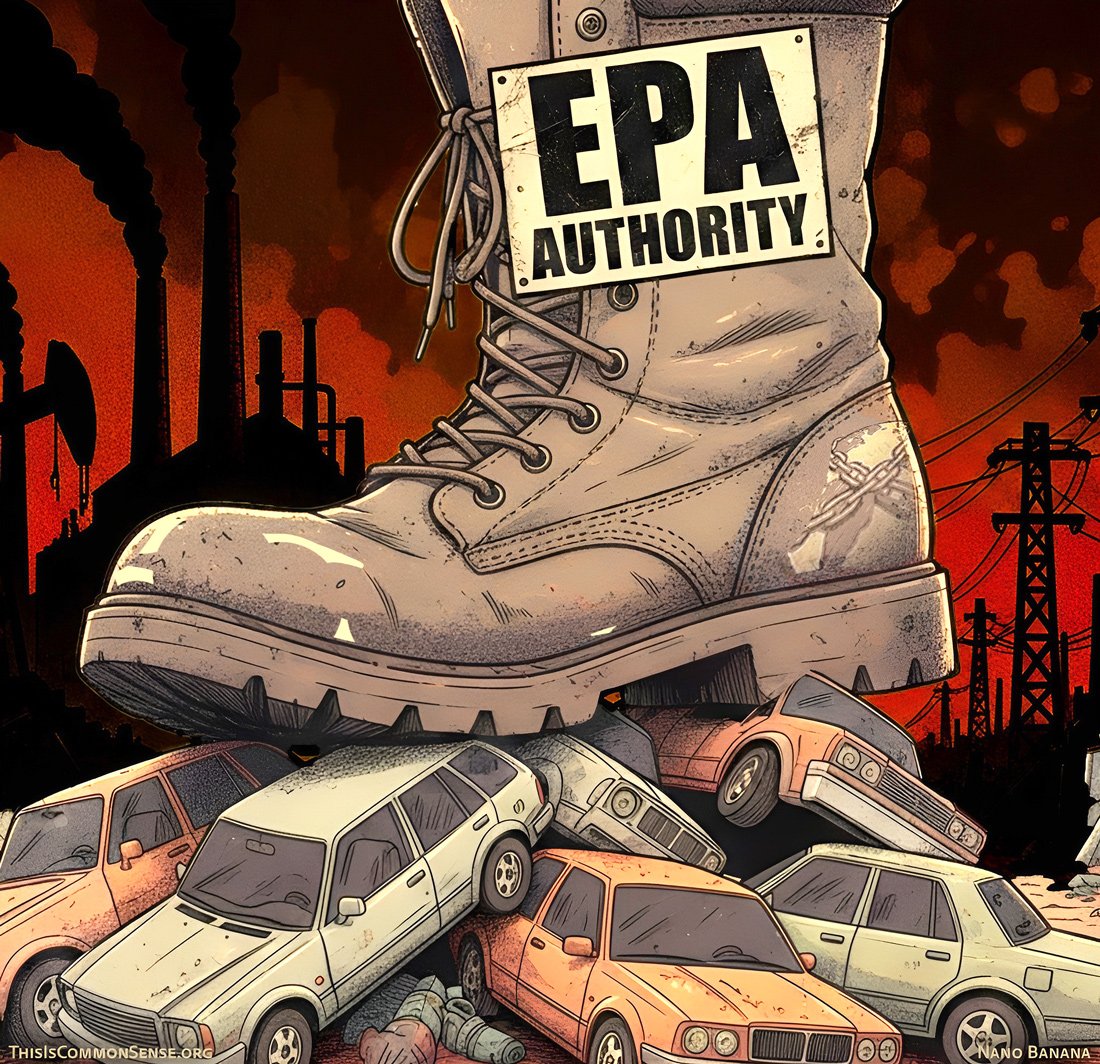In 2009, President Obama and the EPA decided that the will‑o’-the-wisp of fine-tuning the amount of greenhouse gases in the atmosphere fell under the agency’s purview. They introduced a not-so-thin wedge to pry open a vast new province of regulatory oppression.
Obama had sought congressional legislation, but Congress had balked.
So he proceeded without any new laws; or rather, as so often happens, told an agency to issue new laws. (According to one explanation of the difference between laws and regulations, regulations are rules to implement laws. This doesn’t cover the case of regulations or “findings” that are tantamount to new laws although no elected representatives passed them.)
“Health” was at stake, the tyrants declared.
The flourishing of industrial civilization, and thus of human beings, are also matters of health. But no matter.
One consequence of the EPA’s newfound authority was the issuance of other dire “rules,” like the Biden-era mandate that most American-made vehicles be electric by 2032.
Now things may change.
Bigly.
President Trump has ordered the EPA to un-find its 2009 “finding” that it has blanket authority to regulate human emission of greenhouse gases.
The change will be challenged in court.
The Trump administration doubtless expects — perhaps even wants — the litigation. A favorable Supreme Court ruling would block the EPA from re-finding its finding during future administrations. Then legislation — actual, congressional — would be the only way to reimpose the craziness.
A circumstance in which the people might have a say.
This is Common Sense. I’m Paul Jacob.
Illustration created with Nano Banana
See all recent commentary
(simplified and organized)
See recent popular posts





